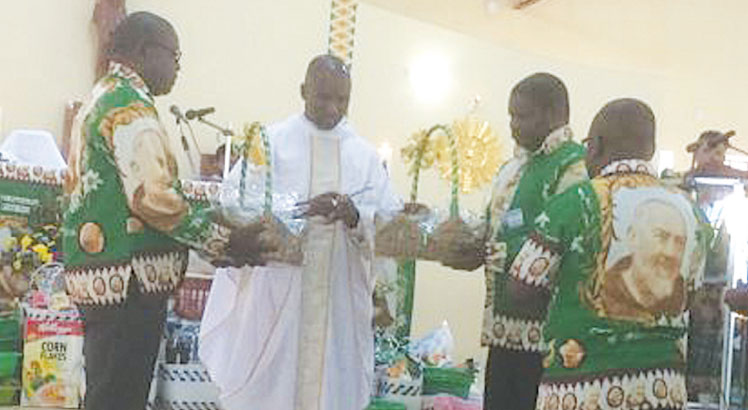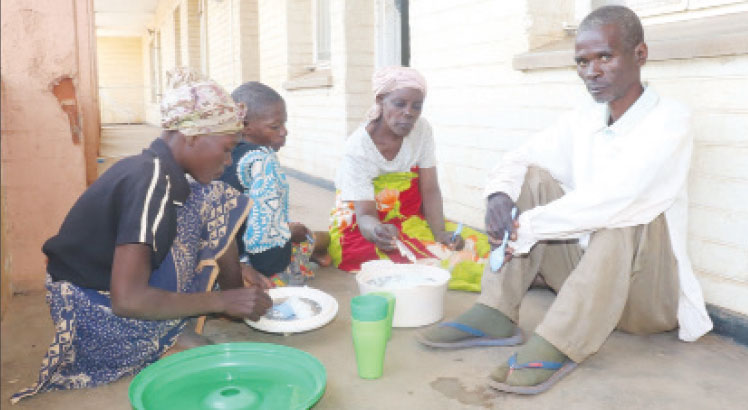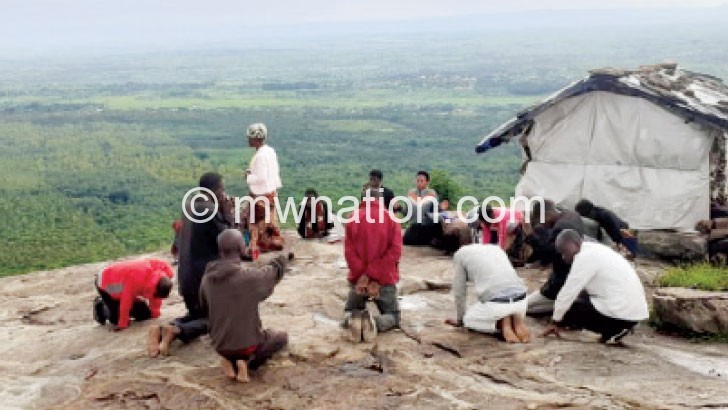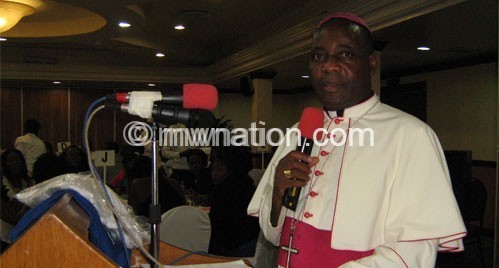When ‘men of God’ join politics
Monday, June 21 1982, will remain memorable to 55-year-old politician Ken Msonda, spokesperson of the People’s Party (PP).
This is the day the slim and tall father of six children received Jesus Christ to be his Saviour at St James CCAP (Zingwangwa). The same year he started teaching children at Sunday School. He still plays that role at South Lunzu CCAP in Blantyre.
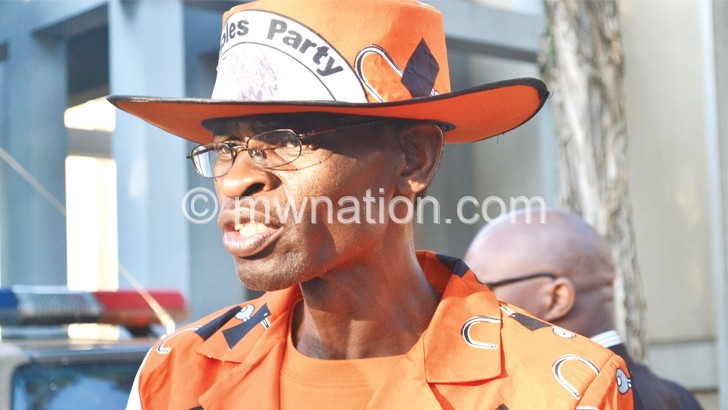
As if that is not enough, Msonda has been South Lunzu Session Clerk for six years now. Together with his friends, they established an evangelism movement called ‘Jesus for All Outreach’ which used to preach the word of God to secondary school students in the Southern and Central regions.
“I have preached to many students in these two regions. And I am happy that some of these students have become pastors,” says Msonda.
Later, in 1993, when Malawi was fighting for multi-party democracy, Msonda joined active politics.
“Everyone is a politician, we just differ in terms of the degree of our participation,” says Msonda.
Msonda is not alone. Several other people have also crossed the floor from religion to politics in the past. These include reverends Dumbo Lemani, Wilson Ndomondo, Lazarus Chakwera, Daniel Gunya, Pat Banda and Malani Mtonga.
But one wonders why ‘men of God’ join politics, which many people think is a dirty game. Indeed, one wonders whether it is right for religious people to dive into the mud of politics. Msonda says he joined politics because he wanted to serve his nation fully.
Msonda explains: “It is bad to say you cannot join politics because you are a religious person. Religious people are the ones that politics needs because they are people of high integrity.
“If more religious people join politics, we would not have corruption cases which we have these days. If we had more religious people we would not have politicians who lie to the nation. I joined politics to serve Malawians.”
Msonda adds that when non-religious people become politicians, their priority is to get rich at the expense of the voters.
But Ntchisi-based Catholic faithful, Emily Chitibu, says men of God should not join politics because it is a dirty game.
“They read verses in front of their followers, but at the same political rallies they castigate their political rivals. They are seen worshiping God today, but the following day we hear that they have stolen tax payers’ money which could be used to procure drugs. As a result, some people die because of lack of medical treatment. That’s equivalent to murder,” says Chitibu.
Italian writer, political scientist and philosopher Niccolo Machiaveli (1469-1527) in his book The Prince advises the ‘politician’ to always appear religious.
“The prince [referring to leaders, including politicians] should appear to be religious to win people’s trust,” says Machiavelli who is described as the father of modern political theory. He is also well-known for his quote that ‘politics has no relation with morals’.
But Msonda says some politicians fear God and have good morals.
“I have been in government. I have had opportunity to engage in corruption, but I always said no to that because I fear my God.
“Even if authorities probe me today, they cannot find me with a corruption case to answer. I am clean because I fear God. Those who join politics to steal are the ones who tarnish the image of politics,” says Msonda.
Another Christian, Joel Chiheni-Phiri from Monkey Bay in Mangochi sees nothing wrong with devoted Christians joining active politics. But Chiheni cautions reverends-cum-politicians to always stand by their righteousness.
“They should not be dictated to by non-religious politicians who do not put God first in their operations,” he says.
Chiheni Phiri’s views are shared by Father Michael Mtambo of Independent Anglican Church, who says there is nothing wrong with ‘men of God’ joining politics as it is possible for a person to balance politics with religion.
One still wonders whether a religious-cum-politician inspires their children. Msonda, who has been in the United Democratic Front (UDF), National Democratic Alliance (NDA) and PP, encourages his children to invest more of their time in serving God than in politics.
“I advise them to serve God first, as I do. Joining politics is a second thing one can do after serving God. However, it does not mean one should forget God when he or she joins politics. Let us balance the two,” says Msonda who comes from a political family. His grandfather, the late Matchipisa Munthali was a veteran politician; and his direct cousin, Kamlepo Kalua is a parliamentarian.
But Msonda confesses that sometimes it is not easy to balance religion with politics. He says in the 20 years he has been an active politician, he has paid a price by being denied opportunity for fear that “I will not accept to do what others do.”
Last year, British Prime Minister David Cameron spoke about his faith, saying he had found “peace” in Christianity. He urged fellow Christians to be “more evangelical” about their faith and claimed Britain should be a more confidently Christian country.
Interestingly, not only politicians, but also great people such as scientists seem to remember to put God first before their worldly discoveries. For example, apart from being a hardworking scientist and mathematician, Sir Isaac Newton was also a devout Christian.
Although today many high school and university students across the world remember Newton as a discoverer of calculus, this great man devoted more time to the study of scripture than science. He studied the Bible daily despite being the busiest scientist.
“I have a fundamental belief in the Bible as the word of God written by those who were inspired. I study the Bible daily,” said Newton who died on March 20 1727.
Definitely, this tells people one thing, that being a great person through politics or science is not enough reason to forget God.


